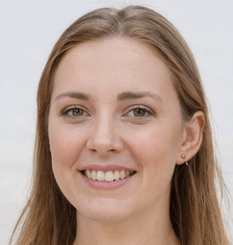By 2007, longstanding wars in Angola, Liberia and Sierra Leone had ended, and reconstruction was underway. Food crises arose in various regions of Africa. The need remained great for food, water and environmental assistance. Traditional indices of health had improved — Africa’s infant and child mortality rates had decreased by 40% since 1960; and 15% more Africans had access to safe water since 1990. Yet HIV & AIDS had engulfed the continent in what is probably the worst pandemic in history.
Africare responded. HIV & AIDS assistance took center stage, and Africare’s work continued to address the range of basic human needs continent-wide.
In June 2002, Africare’s president* of 31 years, C. Payne Lucas, retired, and Julius E. Coles became the third president of the organization.
“There are no Africare programs, only African programs.” That core approach — articulated at Africare’s outset — has remained unchanged. Listen to the people.
- Salome Monareng, leader of a women’s agricultural group in South Africa: “Africare helped us to discover ourselves, the potential that lies within us. And this was real education. We are creating our own jobs rather than waiting for someone to create jobs for us” (2001).
- Alphonse Bizima, president of a small AIDS support group in Rwanda: “Africare’s project is helping us to find solutions to our own problems” (2002).
- Ruth Mufute, who grew up in a poor Zimbabwean village and eventually became the Africare representative in Zimbabwe and Zambia: “I, an average Zimbabwean woman, have been given a chance to help others — other children now living the life I used to live, in areas where I used to live, with dreams like the ones I used to have. Africare gave me that chance” (2004).
*Title changed from executive director to president in 1992.
More Africare history
Early 1970s: “The task undertaken by Africare is immense”
Late 1970s: “Courage to stand firmly against great odds”
Early 1980s: “We need Africare to spread all over Africa”
Late 1980s: “A crucial threshold”
Early 1990s: “I profoundly believe in Africa”
Late 1990s: “The cusp of a new millennium”
Since 2000: “There are no Africare programs, only African programs”

Barbara Meier schreibt seit vielen Jahren für die NPAlliance Ratgeber und Testberichte. Dabei legt sie großen Wert auf die Ausführlichkeit sowie Richtigkeit ihrer Artikel. Sie zählt zu den wenigen Experten in ihrem Gebiet und hat sich über die letzten Jahren einen Namen in der Gesundheitsbranche gemacht.
